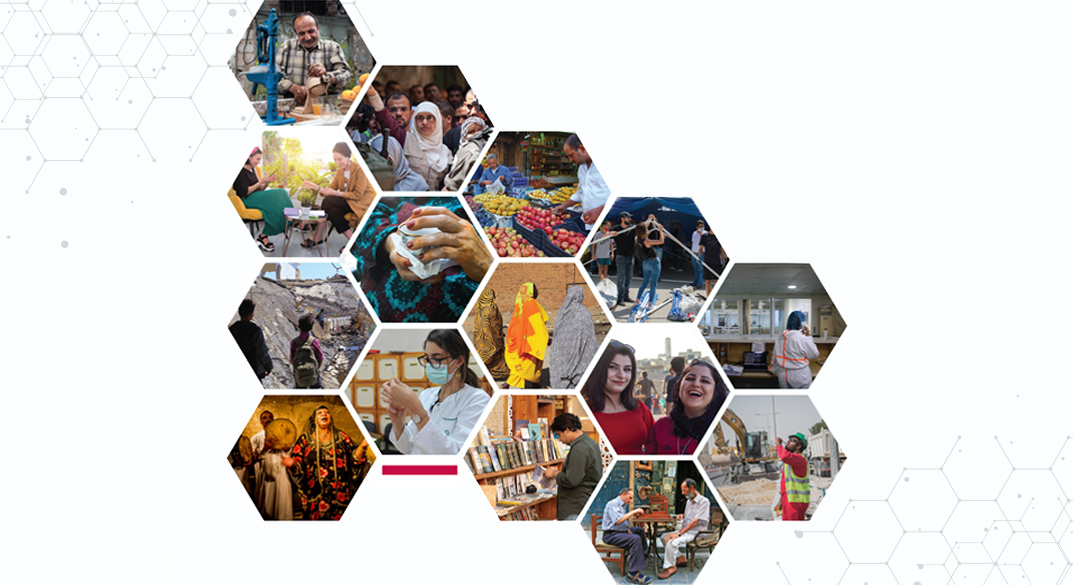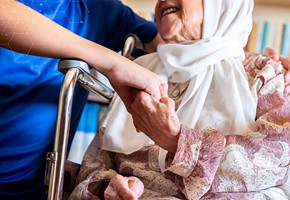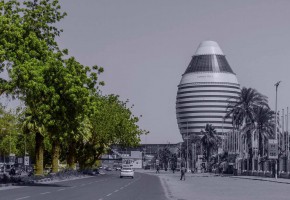
Regional Report: Promoting the right to health in the Arab region - Sawsan Abdulrahim

This research is a part of the Arab Watch Report 2023 on the right to Health.
Regional Report: Promoting the right to health in the Arab region - Sawsan Abdulrahim
Please click here to download the full report.
Introduction
The right to health is codified in numerous international conventions such as the Constitution of the World Health Organization (WHO 1946), the International Covenant on Economic, Social, and Cultural Rights (ICESCR 1966), and the Alma-Ata Declaration on primary healthcare (Declaration of Alma-Ata 1978). It is also recognized in the sustainable development goals (SDGs). In the Arab region, with increasing attention by governments and WHO to achieving universal health coverage (UHC), the right to health continues to be understood narrowly as the right to access healthcare services. The concept of the right to health, however, is much broader and demands integrating human rights-based approaches and linking health with an agenda of eliminating social inequities and achieving justice. Thus, moving the discourse in the region from its focus on healthcare services to recognizing health as a fundamental human right is a major challenge that this sixth Arab Watch Report (AWR-2023) sought to address. Dedicated to the right to health, the AWR-2023 on economic and social rights is a collaboration between the Arab NGO Network for Development (ANND) and the Faculty of Health Sciences at the American University of Beirut (FHS-AUB).
In addition to this regional paper, the AWR-2023 on the right to health includes a set of national papers on Morocco, Tunisia, Mauritania, Egypt, Sudan, Yemen, Palestine, Lebanon, Jordan, and Iraq. The report also includes thematic papers on neoliberalism, social protection, and COVID-19, and a case study on climate change in Kuwait. The papers, collectively, provide a comprehensive review of the status of the right to health in the region and highlight critical challenges and gaps. Whilst each national paper uniquely reflects the health situation in the country it represents, all papers were developed through a systematic methodology and a collaborative process to address health through a rights lens and to engage with its economic and political determinants.
The methodology followed in national papers was guided by a 2008 evaluation of right to health features of health systems in 194 countries (Backman et al. 2008). The evaluation examined a broad range of criteria related to health through the lens of equity and rights (Appendix B). In addition to the availability of healthcare services, the evaluation addressed the right to access the determinants of health such as sanitation services, education, housing, and health related information. It further assessed whether a health system includes a national plan to monitor the progressive realization of the right to health and whether this system monitors non-discrimination and community participation. Non-discrimination in the distribution of health resources is a core obligation that is not subject to progressive realization as it implies equitable distribution even when resources are limited.
Working on the AWR-2023 commenced on the heels of the COVID-19 pandemic and at a time when the Arab region was facing enormous economic challenges and protracted civil wars and mass displacements, a context that will bear negatively on achieving the right to health for the majority of the region’s 430 million inhabitants in the coming years. The impact of COVID-19 and the ways in which it uncovered inefficient health systems and weak social protection mechanisms is a theme that runs through all papers in the report and that is summarized as a theme in this regional paper. Although COVID-19 is a transient crisis, as infection rates have waned globally, it was a critical moment that exposed the ills of inequitable economic policies, absence of sufficient social protection mechanisms, and inefficient health systems in many countries in the region including high income ones. Under the weight of an expanding neoliberal global economic system and weak health governance structures in Arab countries, realizing the right to health for large segments of the Arab population may remain elusive in a post COVID-19 era.
The AWR-2023 is a political intervention that utilizes the right to health as an entry point to claiming other fundamental social, economic, and political rights. The prominence of health in demands for freedom and justice in the Arab region lies in the fact that violating the right to health impairs attaining other rights. As eloquently stated by one of the AWR-2023’s advisory board members in one of the meetings, “violating the right to health is violating the right to life.” It is hoped that the analytical summary presented in this regional paper, and the information and evidence expounded on in national and thematic papers in the report, will serve as a platform for civil society groups and activists to advocate for the realization of the right to health in their own countries and the region as a whole. In heading the call to achieve “health for all by all,” advocates should prod Arab states to take steps to realize the right to heath for all citizens and non-citizen migrants and refugees within their national borders.
This regional paper provides a theoretical base and a synthesis of evidence delineated in the AWR-2023 papers. It begins with a review of the meaning of the right to health, the historical events that contributed to its rise and transformation, and the connections between the right to health and other rights and entitlements. The second section in the paper presents a sketch of the political economy of the Arab region and the ways in which policies facilitate or impede achieving the right to health. The third and main section in the paper synthesizes the information and evidence presented in national and thematic papers, and the case study, under six cross-cutting themes: state recognition of the right to health versus realities on the ground; health system governance and neoliberalism; the right to health in a COVID-19 era; the impact of war, occupation, and displacement; and climate change. The themes were developed through a careful reading of early drafts of the papers and discussions during two meetings that brought together authors and ANND advisory board members. A seventh theme in this section summarizes a few critical issues that bear on the right to health in the region but that were not sufficiently highlighted in national papers. The report concludes with policy recommendations.
Sawsan Abdulrahim
Please click here to download the full report.
This research is a part of the Arab Watch Report 2023 on the right to Health.
Recent publications

ANND Newsletter January 2026 - From Davos to the UPR: Between Promises, and Accountability
Related publications


